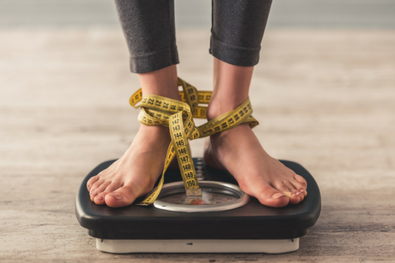We applaud modern conversations that broaden the acceptance of what health really looks and feels like. But is diet really a four-letter word?
We applaud modern conversations that broaden the acceptance of what health really looks and feels like. But is diet really a four-letter word?

I don’t follow a special diet and I really like the concept of intuitive eating, where I become more in tune with my own body and its signals overtime to help guide my food decisions and actions. Of course, as a woman and new mom, I also give myself a lot of grace.
I wouldn't say I’m anti-diet, but I try not to instill strict food rules. Rather, I make positive guidelines, such as always making sure I have fresh produce and other nutritious options within reach at home and work. And I try not to bring less healthful options around (not that a bag of chocolate chips—intentioned for homemade cookies—doesn't make its way into my cart quite often). Another strategy: I limit the number of restaurant meals—whether for lunch or dinner—that my family purchases in a week.
As the editor of Delicious Living and a registered dietitian, I also know firsthand that many people thrive and finally achieve health when they put some guidelines and restrictions around their food intake and pinpoint their ideal diet. There are many instances where following a diet has helped an individual or family heal, gain confidence, remove or lessen the impact of disease, find new energy or purpose, or set off on a renewed path to wellness, whether the diet is followed for a short amount of time or a lifelong journey.
But there’s an anti-diet movement gaining steam. True, the number on the scale is only one indicator of wellness, and living in a culture where we are constantly bombarded by images that relate skinniness to health has, historically, caused many problems, including eating disorders, body shaming and depression.
But is diet really a four-letter word?
On one hand, I wholeheartedly believe that health is not a one-size-fits-all prescription, nor is it achieved by people of any one body size. Our American culture is, no doubt, body obsessed and we could do well to adopt a much wider view of acceptance when we assess what health and wellness really looks and feels like. Those are positive aspects of shifting the focus from pounds and size to energy level and whether or not one can walk a few miles without pain, for example. Also, there’s the issue of crash dieting and the ill effects of creating a lose-gain, lose-gain pattern that results in frustration, burn out and lost confidence.
On the other hand, being overweight and obese can be very serious threats to health. And not all attempts to drop some pounds are in vain. People adopt diets for far more reasons than just to lose weight or fit into a certain outfit. Whether by watching their calorie intake, removing a trigger food (or group of them) or subscribing to an established plan, such as Weight Watchers or Whole30, people pursue weight loss for all sorts of noble reasons. Who could blame someone for wanting to alleviate knee pain, get off medications, reduce their risk of a heart attack or live longer? Not me. In fact, I’ll be there to cheer them on, with support and suggestions.
One thing is for sure: A downside of the anti-diet movement is the rejection of any conversation about diets or weight loss for proven healing or the pursuit of wellness through food. Those can be—and largely are—very positive messages and stories to tell. And even if dieting or watching your weight are not parts of your path to personal wellness and markers of your own health (it’s not a main focus for me), that doesn't mean it’s not a meaningful tool or pursuit for others.